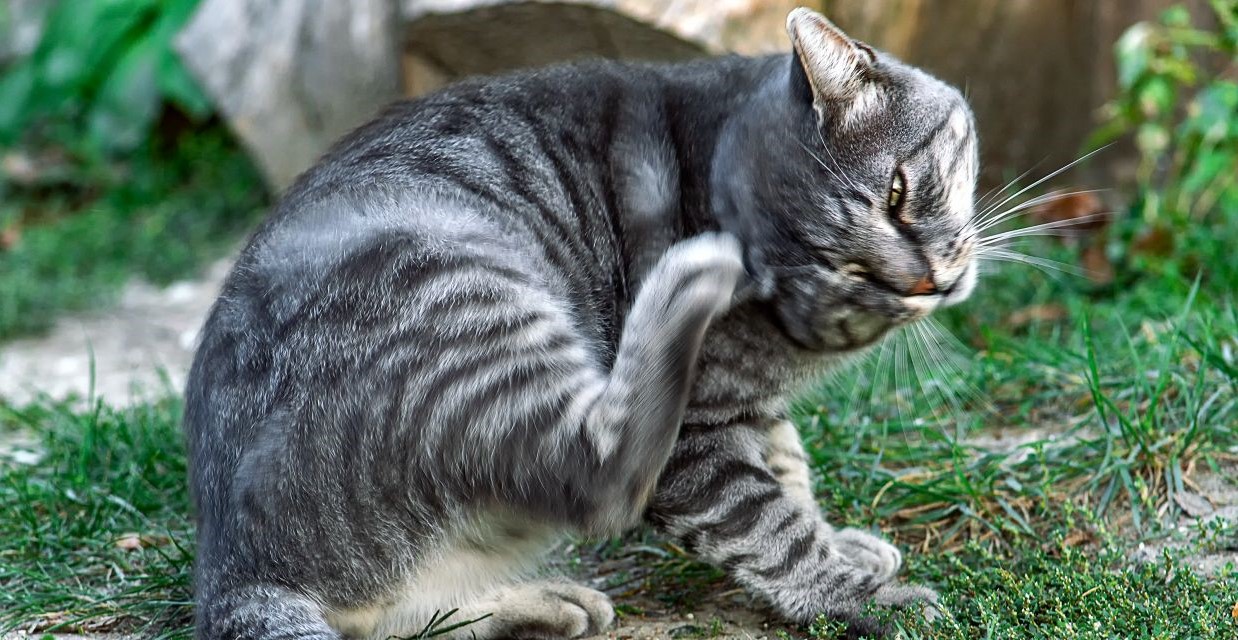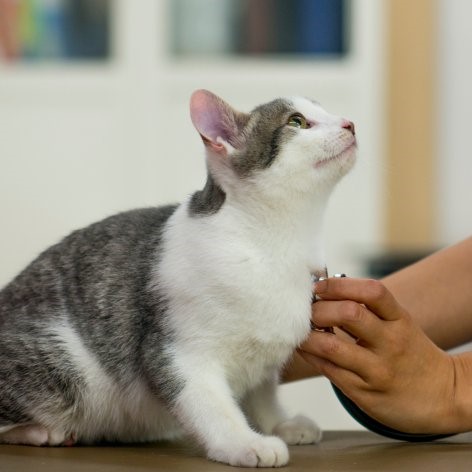Cats love a good scratch behind the ears. Because just like us, felines get itchy, scratchy ears now and then. But if you find that your cat is constantly grazing their ears, rubbing their head on the floor, or walking with their head tilted to the side, they may have an ear infection.
Sounds like an ear infection.
They’ll begin by shaking their head occasionally, then scratching their ear. This behaviour will gradually increase until your poor, irritated cat just can’t take it anymore. Your cat may even moan as they try to scratch the ear, as well as rub their head along the ground.
Walking with their head at an angle is a good indication that they may have an ear infection.
When you examine your cat’s ear, you may notice:
- A pungent odour.
- Some discharge in the ear, especially in the ear canal. This may be brown, or yellow and pus-like (not to be confused with puss-like, for cat’s sake). The discharge may also contain blood, so you won’t want to turn a blind cat’s eye to it.
Sometimes little creepy crawlies called ear mites can cause ear infections, in cats. These very unwelcome guests move around the ear canal and cause great discomfort for your kitty – not to mention, make your skin crawl just by reading this. Your cat’s ears will respond to the ear mites by pumping out a waxy discharge. Unfortunately, this gunk is the perfect hangout for bacteria, and yeasts, while making the problem even worse for your cat.
When to see the Vet
It’s usually better – and safer – to put your kitty’s ears in the care of your vet, for a professional examination and cleaning – rather than doing it yourself. Your vet will look into your cat’s ears with an otoscope to find out what’s causing the discomfort. If those pesky ear mites are present, the vet will find them, don’t worry. But in many cases, bacteria and yeasts alone can cause the ear infection.
There might also be completely foreign elements such as grass seeds, in the ear.
Your vet will treat this right away.
It’s possible your vet may need to anaesthetise your cat, to make sure they can do thorough exam and cleaning. Your vet will most likely need to take a sample of the discharge and examine it under a microscope, to nail whatever bugs could be causing the infection.
However things go for your cat, they’ll more than likely need medications to completely clear up the ear problem. (Unfortunately, most of these types of ear meds aren’t available over-the-counter.) Be sure to complete the full course of any medications or ointment your vet prescribes, rather than guessing when you think it’s under control.




